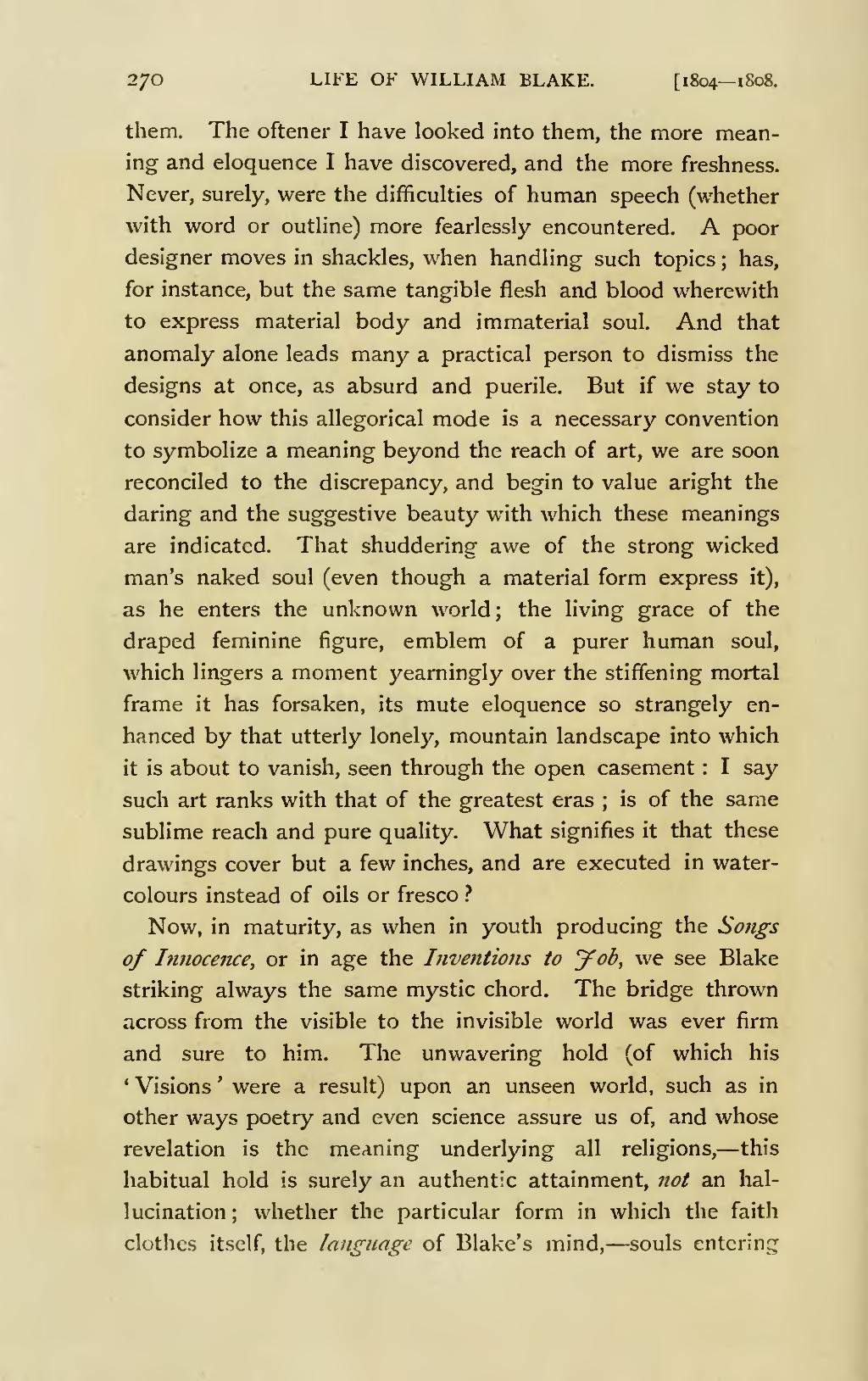them. The oftener I have looked into them, the more meaning and eloquence I have discovered, and the more freshness. Never, surely, were the difficulties of human speech (whether with word or outline) more fearlessly encountered. A poor designer moves in shackles, when handling such topics; has, for instance, but the same tangible flesh and blood wherewith to express material body and immaterial soul. And that anomaly alone leads many a practical person to dismiss the designs at once, as absurd and puerile. But if we stay to consider how this allegorical mode is a necessary convention to symbolize a meaning beyond the reach of art, we are soon reconciled to the discrepancy, and begin to value aright the daring and the suggestive beauty with which these meanings are indicated. That shuddering awe of the strong wicked man's naked soul (even though a material form express it), as he enters the unknown world; the living grace of the draped feminine figure, emblem of a purer human soul, which lingers a moment yearningly over the stiffening mortal frame it has forsaken, its mute eloquence so strangely enhanced by that utterly lonely, mountain landscape into which it is about to vanish, seen through the open casement: I say such art ranks with that of the greatest eras; is of the same sublime reach and pure quality. What signifies it that these drawings cover but a few inches, and are executed in watercolours instead of oils or fresco?
Now, in maturity, as when in youth producing the Songs of Innocence, or in age the Inventions to Job, we see Blake striking always the same mystic chord. The bridge thrown across from the visible to the invisible world was ever firm and sure to him. The unwavering hold (of which his 'Visions' were a result) upon an unseen world, such as in other ways poetry and even science assure us of, and whose revelation is the meaning underlying all religions,—this habitual hold is surely an authentic attainment, not an hallucination; whether the particular form in which the faith clothes itself, the language of Blake's mind,—souls entering
